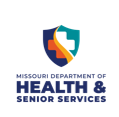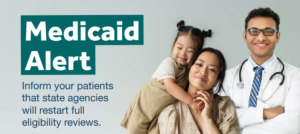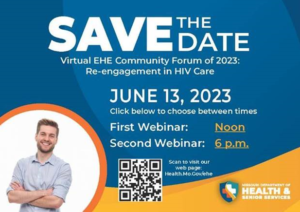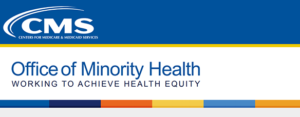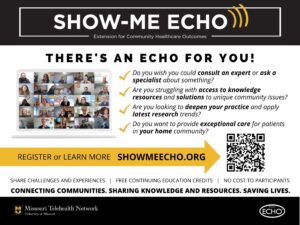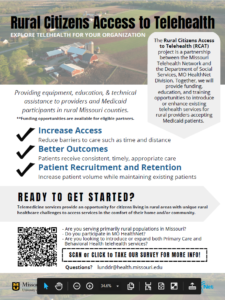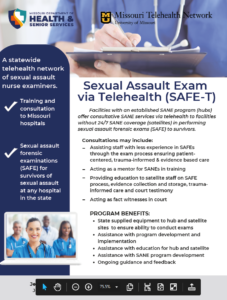June 12, 2023

CMS Announces Multi-State Initiative to Strengthen Primary Care
New Model Aims to Enhance Access and Quality of Primary Care, Improve Health System
Today, the Centers for Medicare & Medicaid Services (CMS) announced a new primary care model – the Making Care Primary (MCP) Model – that will be tested under the Center for Medicare and Medicaid Innovation in eight states. Access to high-quality primary care is associated with better health outcomes and equity for people and communities. MCP is an important step in strengthening the primary care infrastructure in the country, especially for safety net and smaller or independent primary care organizations. The model seeks to improve care for patients by expanding and enhancing care management and care coordination, equipping primary care clinicians with tools to form partnerships with health care specialists, and leveraging community-based connections to address patients’ health needs as well as their health-related social needs.
The goals of MCP are to 1) ensure patients receive primary care that is integrated, coordinated, person-centered and accountable; 2) create a pathway for primary care organizations and practices – especially small, independent, rural, and safety net organizations – to enter into value-based care arrangements; and 3) to improve the quality of care and health outcomes of patients while reducing program expenditures.
The MCP Model will provide participants with additional revenue to build infrastructure, make primary care services more accessible, as well as better coordinate care with specialists. CMS expects this work to lead to downstream savings over time through better preventive care and reducing potentially avoidable costs, such as repeat hospitalizations. MCP will run for 10.5 years, from July 1, 2024, to December 31, 2034. The model will build upon previous primary care models, such as the Comprehensive Primary Care (CPC), CPC+, Primary Care First models, and the Maryland Primary Care Program (MDPCP).
CMS will test this advanced primary care model in Colorado, Massachusetts, Minnesota, New Jersey, New Mexico, New York, North Carolina, and Washington. CMS will work with model participants to address priorities specific to their communities, including care management for chronic conditions, behavioral health services, and health care access for rural residents. CMS is working with State Medicaid Agencies in the eight states to engage in full care transformation across public programs, with plans to engage private payers in the coming months. The model’s flexible multi-payer alignment strategy allows CMS to build on existing state innovations and for all patients served by participating primary care clinicians to benefit from improvements in care delivery, financial investments in primary care, and learning tools and supports under the model.
“The goal of the Making Care Primary Model is to improve care for people with Medicaid and Medicare,” said CMS Administrator Chiquita Brooks-LaSure. “This model is one more pathway CMS is taking to improve access to care and quality of care, especially to those in rural areas and other underserved populations. This model focuses on improving care management and care coordination, equipping primary care clinicians with tools to form partnerships with health care specialists, and partnering with community-based organizations, which will help the people we serve with better managing their health conditions and reaching their health goals.”
Strong relationships with primary care teams are essential for patients’ overall health. Primary care clinicians provide preventive services, help manage chronic conditions, and coordinate care with other clinicians. By investing in care integration and care management capabilities, primary care teams will be better equipped to address chronic disease and lessen the likelihood of emergency department visits and acute care stays, ultimately lowering costs of care. This model will support participants with varying levels of experience with value-based care, including Federally Qualified Health Centers (FQHCs) and physician practices with limited experience in value-based care, as CMS continues to work to reduce disparities in care and drive better patient experience and outcomes.
“Ensuring stability, resiliency, and access to primary care will only improve the health care system,” said CMS Deputy Administrator and Center for Medicare and Medicaid Innovation Director Liz Fowler. “The Making Care Primary Model represents an unprecedented investment in our nation’s primary care network and brings us closer to our goal of reaching 100% of Traditional Medicare beneficiaries and the vast majority of Medicaid beneficiaries in accountable care arrangements, including advanced primary care, by 2030.”
The model includes a progressive three-track approach based on participants’ experience level with value-based care and alternative payment models. Participants, which include FQHCs, Indian Health Service facilities, and Tribal clinics, among others, in all three tracks will receive enhanced payments, with participants in Track One focusing on building infrastructure to support care transformation. In Tracks Two and Three, the model will include certain advance payments and will offer more opportunities for bonus payments based on participant performance. This approach will support clinicians across the readiness continuum in their transition to value-based care, furthering CMS’s goal to ensure 100% of traditional Medicare beneficiaries are in a care relationship with accountability for quality and total cost of care.
Primary care organizations within participating states may apply when the application opens in late summer 2023. The model will launch on July 1, 2024.
To view the MCP webpage, visit: https://innovation.cms.gov/innovation-models/making-care-primary
To view a model key highlights video, visit: https://youtu.be/8vy3PHHlCe4




